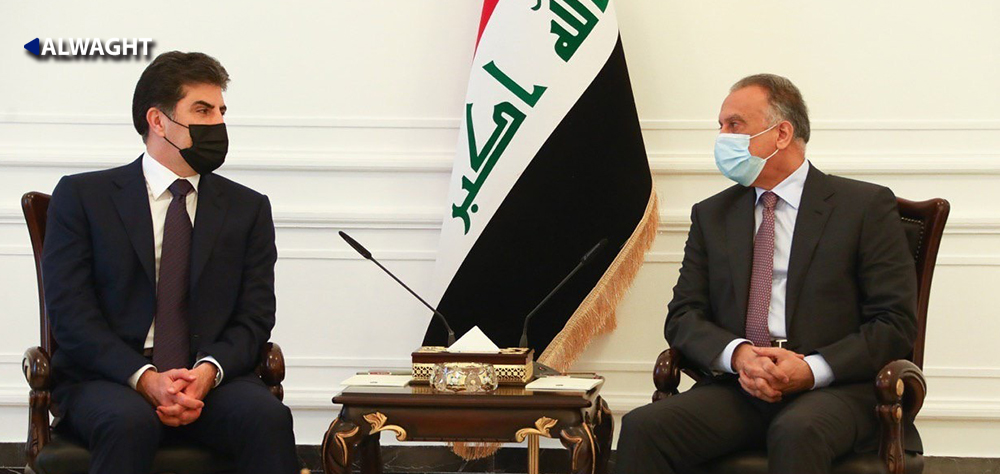Alwaght- In a controversial decision that drew opposition from finance minister, the Iraqi government decided on June 16 to pay $200 billion dinars ($14 million) monthly to the Kurdish Regional Government (KRG) to finance payments to state workers in the autonomous region. The decision was put to vote at a government meeting and the ministers unanimously approved the funding. According to the government, the payment will be considered since the first day of the first month of this year and will be made to Erbil, meaning that Baghdad has to pay 1.2 trillion dinars as employee salaries to the KRG.
The decision was made as the budget has been a contentious issue between Erbil and Baghdad since 2013. It has triggered massive opposition from various political circles. But what is the reason behind the opposition and why has al-Kadhimi made such a decision in the current conditions?
Ongoing dispute over adherence to agreement on the oil and budget
In analyzing the massive objection to the government decision, it must be taken into account that it has roots in the Kurdish dispute with the central government over budget and oil. Over the past years, Erbil leaders insisted that the central government should provide the employees payment budget. On the opposite side, Baghdad pressed for supervision over the Kurdish oil sales. Both accuse each other of failing to keep commitment.
But in the new conditions, after the world oil price rose to more than $70 a barrel, Erbil has gained a large or maximum part of the budget needed to pay employees, and with 200 billion dinars sent by the central government, now the income of the KRG reaches more than 1 trillion dinars, which is over 100 billion dinars more than the budget needed to pay full salaries to employees. Here is a list of the KRG monthly incomes after new budget is sent to Erbil: 200 billion dinars paid by Baghdad, $450 billion earned from oil sales, 350 billion internal incomes, and 25 billion dinar in aids from the "global coalition." All these sums make a total of 1,025 billion dinars, while the budget needed for the salaries is 894 billion dinars. So, there would be a 130 billion surplus.
Some Iraqi political parties have expressed dissatisfaction with the government plan and even threatened to impeach Prime Minister Mustafa al-Kadhimi. For example, Hassan Salem, the head of Fatah coalition in the parliament in a statement said paying 200 billion dinars monthly "ex post facto" is an open violation of the constitution and the 2021 budget law, according to which the two sides should commit to their promises.
"To prevent waste of the public budget, we would take legal actions. The attorney general should prevent this payment to the Kurdish region. The prime minister should be impeached for not committing to the constitution," he was quoted as saying.
Also, Burhanuddin Ishaq, a senior member of the Babilioun Movement, said that the Iraqi cabinet's decision to pay 200 billion dinars a month to the Kurdish region ex post facto from the beginning of this year, without the Erbil government complying with its obligations in the budget law, violates the Iraqi constitution and other ordinary laws.
"The reason for that is lack of political will to pass oil and gas law to regulate the revenues of sales of energy resources," he added.
It seems that the decision will stir further opposition and increase the tension between the Kurds and the central government to new heights.
Al-Kadhimi’s election goals
The future elections, scheduled for October 10, also make a reason for this al-Kadhimi's decision. The fact is that al-Kadhimi is trying to secure Kurdish seats in parliament in the run-up to this election. This means that he can now secure about 60 purely Kurdish parliamentary seats. He is well aware that the vast majority of Kurdish parties will welcome Baghdad sending funds to pay the salaries of region's workers, and that his recent decision could spur Kurdish support for his reelection.
Also, it seems that he intends to coalesce with Muqtada al-Sadr, the head of Saerun coalition, and Masoud Barzani, the head of the Kurdish Democratic Party, to retain his premiership, as the two parties are rumored to have plans for a coalition. Therefore, it can be concluded that the funding plan has election goals and helps an alliance between him and the two political leaders.



























